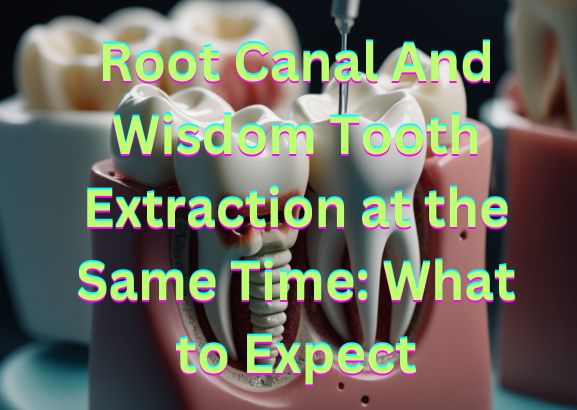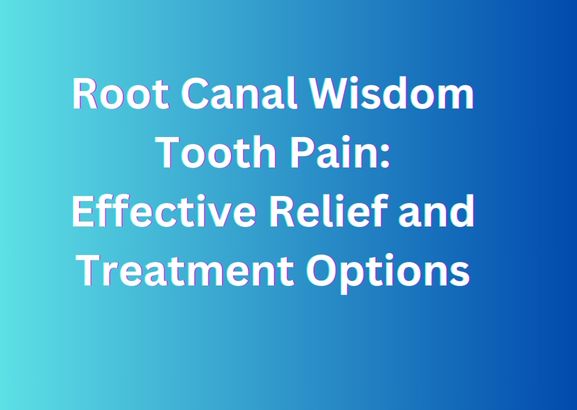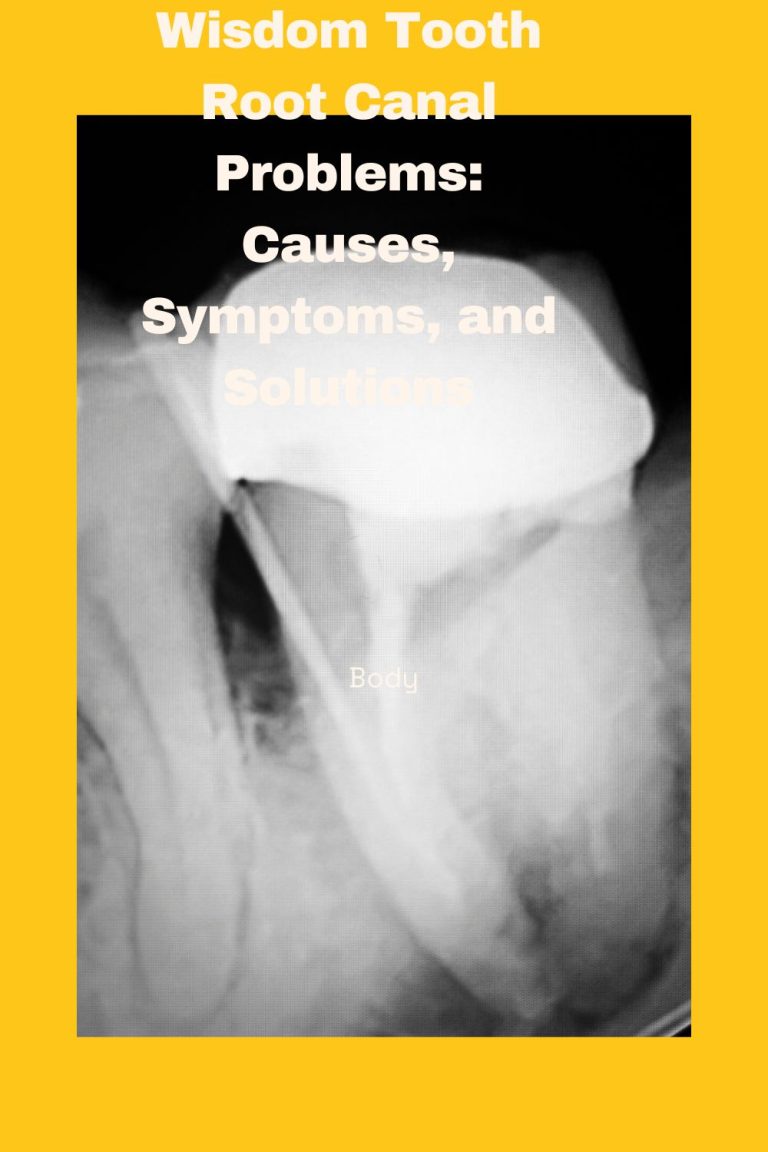Can You Drive After a Root Canal?
The short answer is yes, you can drive after a root canal. The procedure itself is not particularly painful, and the numbing medication will last a few hours. You may have some soreness afterward, but it shouldn’t be enough to interfere with driving.
Just be sure to take it easy and rest when you get home.

Credit: www.healthline.com
How Long After Root Canal Can You Drive?
The procedure involves removing the damaged tissue from inside the tooth, cleaning it out, and then filling it with a special material. A root canal can be done in one or two visits to your dentist, depending on the severity of the damage.
After having a root canal, you may experience some soreness and tenderness in your mouth. This is not a serious issue. You may also have some swelling in your face, which should also subside within a few days.
If you take pain medication as directed by your dentist, you should be able to manage any discomfort you feel. You should avoid chewing on hard foods for at least 24 hours after having a root canal so that the area can heal properly. Your dentist may also suggest that you use an over-the-counter mouth rinse to help keep the area clean and free of infection.
It’s important to brush and floss regularly after having a root canal so that bacteria don’t build up and cause further damage to your tooth. In most cases, you’ll be able to drive after having a root canal as long as you don’t feel dizzy or lightheaded from the medication you’ve been given. If you’re unsure whether or not it’s safe for you to drive, ask your dentist before getting behind the wheel.
What Is The Rules and Regulations After a Root Canal?
After you have a root canal, there are a few things that you should avoid doing in order to ensure a successful treatment. Here are four things you should not do after a root canal:
1. Avoid chewing hard foods – After your root canal, your teeth will be more vulnerable to damage.
Chewing on hard foods can crack or break your teeth, which can lead to further complications. Stick to soft foods for at least the first 24 hours after your procedure.
2. Avoid using straws – Sucking through a straw can put unnecessary pressure on your teeth and could cause them to become dislodged from the socket.
Wait at least 24 hours before using a straw again.
3. Avoid smoking – Smoking can delay the healing process and increase the risk of infection. If you smoke, it’s best to abstain for at least 48 hours after your root canal procedure.
Should I Take off Work the Day After a Root Canal?
It’s generally recommended that you take at least the day off after a root canal, if not a few days. This is because the procedure can be quite invasive, and it takes some time for your body to recover. Additionally, you may be prescribed medication to help with pain and swelling, which can make it unsafe to operate machinery or drive.
So taking some time off to rest and recover is generally the best course of action.
Do And Don’Ts After Root Canal Treatment?
After a root canal procedure, it is important to take care of your tooth to ensure that the infection does not return. Here are some do and don’ts after a root canal:
DO:
Take any antibiotics prescribed by your dentist as directed. This will help to clear up any remaining infection in the tooth.
Keep brushing and flossing regularly a day two times. Be gentle around the area where the root canal was performed. See your dentist for regular checkups and cleanings as scheduled.
If you have a temporary filling in place, be sure to avoid chewing on hard foods or crunching ice so that you don’t damage the filling. Eat soft foods for the first few days after the procedure until your mouth feels more comfortable.
DON’T:
Do not smoke tobacco products, as this can increase your risk of developing an infection at the site of the root canal. -Do not neglect oral hygiene, as this can lead to reinfection of the tooth.
Is Driving Good After a Root Canal With Laughing Gas?
If you’ve ever had a root canal, you know that it can be pretty uncomfortable. And if you’ve ever had one done with laughing gas, you know that it can make the experience a lot more bearable. But can you drive after a root canal with laughing gas?
yes, but in mind keep some regulations. First of all, your dentist will likely give you a sedative along with laughing gas to help keep you relaxed during the procedure. This means that you’ll need someone else to drive you home afterward.
Secondly, it’s important to not drink any alcohol or operate any machinery for at least 24 hours after having a root canal with laughing gas. The sedative can stay in your system for a while and combined with alcohol, it could impair your ability to function properly. So if you’re getting a root canal with laughing gas, just be sure to have someone else drive you home and don’t drink or operate any machinery for at least 24 hours afterward.
Other than that, there shouldn’t be any problem!
What Not to Do Before a Root Canal
Root canals are one of the most common dental procedures, but they can also be one of the most feared. The idea of having a drill going into your tooth can be enough to make anyone anxious. But it’s important to remember that root canals are usually only necessary when there is an infection or damage to the nerve of the tooth.
And while the procedure may sound daunting, it’s quite routine and relatively pain-free. That being said, there are still some things you should avoid doing before a root canal.
Here are 5 things not to do before your next root canal:
Tips 1 – Don’t Skip Your Dental Appointment If you think you might need a root canal, the worst thing you can do is skip your dentist appointment. Ignoring the problem will not make it go away and will only make it worse.
If you have an infection, it could spread and cause more damage to your tooth. So if you’re in pain or suspect something might be wrong, call your dentist right away and schedule an appointment.
Tips 2- Don’t Wait Too Long to See the Dentist
Once you have an appointment scheduled, don’t wait too long to see the dentist. The longer you wait, the worse the problem could become. If you have an infection, waiting too long could allow it to spread and cause further damage to your tooth or even lead to complications like abscesses.
So if you think you need a root canal, don’t delay—make sure to see your dentist as soon as possible.
Tips 3- Avoid Chewing Hard Foods Once you know a root canal is necessary, avoid chewing hard foods on that side of your mouth. This includes crunchy fruits and vegetables, hard candy, pretzels, etc.
Eating these types of foods could irritate the area around your tooth and make any existing pain worse. Stick to soft foods until after your procedure.
Tips 4- Don’t Use tobacco Tobacco use is never good for oral health, but it’s especially important to avoid it before a root canal. Smoking or using other tobacco products increases your risk for infections and slows down healing. It’s best to quit at least a week or two before your procedure so that your mouth has time to heal properly afterward.
Tips 5- Don’t Brush Too Hard You should always brush gently so as not to injure delicate gum tissue — but this is especially important leading up to a root canal since inflamed gums can be very sensitive. Be extra careful when brushing around the affected tooth until after your procedure has been completed successfully.
Can I Go to Work Right After a Root Canal
A root canal is a treatment used to save a tooth that is badly decayed or infected. The procedure involves removing the damaged tissue from inside the tooth and then filling and sealing the tooth. A root canal can be a very effective way to treat a damaged or infected tooth and prevent further damage.
After having a root canal, it is important to take care of your teeth and gums. You should brush and floss regularly and see your dentist for regular checkups. It is also important to avoid chewing hard foods or biting your nails.
How Long Does a Root Canal Take
If you’re facing a root canal, the first question on your mind is probably “how long will this take?” The answer may vary depending on the severity of your tooth infection and the number of canals in your tooth. In general, however, most root canals can be completed in one or two visits to the dentist.
During a root canal procedure, the dentist will clean out the infected tissue from inside your tooth. Once the infection is gone, they’ll fill the space with a rubber-like material called gutta-percha. This helps to strengthen and protect your tooth from future infections.
The entire process usually takes about an hour or two, although it may be shorter or longer depending on your case. Afterward, you’ll likely need to see your dentist for a follow-up visit to make sure everything is healing properly. Root canals are generally considered to be pretty successful procedures.
More than 95% of teeth that have had a root canal remain healthy for many years after treatment. So if you’re facing a root canal, there’s no need to worry – chances are good that it will all go smoothly and your tooth will be as good as new in no time!
About Driving After A Root Canal What Reddit Say?
You may be wondering if you can drive after a root canal. The answer is yes, you can drive after a root canal. However, we recommend that you wait at least an hour after the procedure before driving so that the anesthesia can wear off and you can be sure you are feeling well enough to drive safely.
Can You Eat After a Root Canal
If you’ve had a root canal, you may be wondering if it’s safe to eat afterward. The short answer is yes, you can eat after a root canal. However, there are a few things you should keep in mind.
Immediately after your root canal procedure, your teeth may be sensitive. This will improve very early. In the meantime, stick to soft foods that won’t irritate your teeth.
Avoid chewing on hard foods or anything with sharp edges (like ice). It’s also important to take care of your teeth after a root canal. Be sure to brush and floss regularly and see your dentist for follow-up appointments.
With proper care, your teeth will remain healthy and strong for years to come!
How Painful is a Root Canal
While a root canal can be a very effective way to save a tooth, it can also be quite painful.
There are a few different reasons why a root canal might be painful. First, the area around the tooth will be numbed before the procedure begins. However, there may still be some sensation in the tooth during the procedure.
Additionally, the pressure from the instruments used to clean out the decay can cause pain. Finally, after the procedure is complete, your tooth may be sensitive to hot or cold temperatures for a while. If you are experiencing pain after your root canal, there are a few things you can do to help ease it.
Over-the-counter pain medications like ibuprofen or acetaminophen can help reduce discomfort. You can also apply ice packs to your cheek for 20 minutes at a time to help numb any residual pain in your tooth. If you are still having pain after trying these methods, please contact your dentist so they can help determine what else might be causing it.
Can You Drive After Local Anesthesia from Dentist

It’s common to experience some numbing after a trip to the dentist for a filling or other procedure that requires local anesthesia. This is caused by the anesthesia wearing off and is perfectly normal. However, you may be wondering if it’s safe to drive after your appointment.
The answer is yes, you can drive after local anesthesia from the dentist. However, it’s important to take some precautions. First, make sure that the numbness has completely worn off before getting behind the wheel.
It’s also a good idea to have someone else with you in case you start feeling dizzy or lightheaded. Finally, take it easy on the road – no sudden stops or turns!
Conclusion
At the conclusion after a root canal, you may experience some discomfort and sensitivity, but this should go away within a few days.
You will be able to drive after a root canal, but you may want to take it easy for the first day or so until the numbness from the anesthesia wears off.
- Visit your dentist to have a root canal procedure performed
- This will involve the removal of the damaged or infected pulp from inside your tooth
- Once the procedure is complete, you will be given specific instructions on how to care for your tooth and what to expect in terms of recovery time
- Be sure to follow these instructions closely
- After a root canal, it is important to avoid chewing directly on the affected tooth for at least 24 hours
- You can eat soft foods during this time, but be careful not to put too much pressure on the tooth
- Once the initial recovery period has passed, you can resume normal activities with your teeth
- However, it is important to take good care of your teeth and visit your dentist regularly for checkups and cleanings



